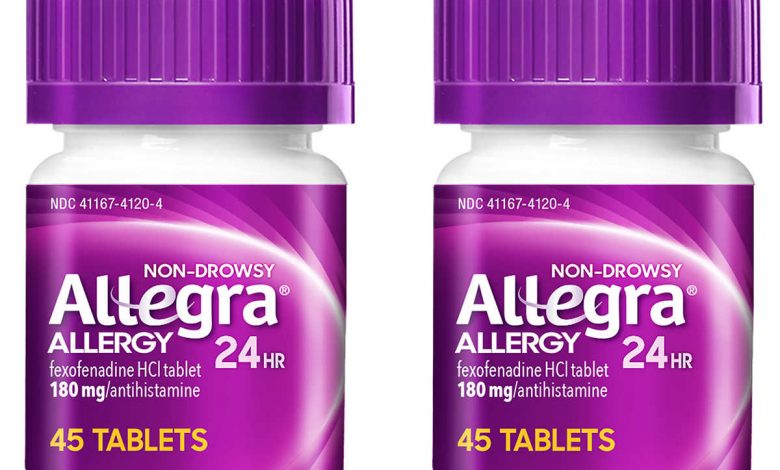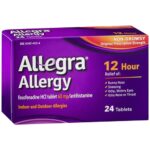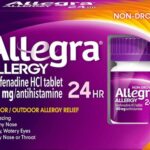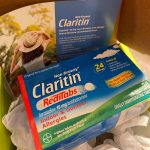What Happens If You Take 2 Allegra In 24 Hours

Allegra is a brand of fexofenadine, an antihistamine that reduces the effects of the natural chemical histamine in the body. Histamine can produce symptoms of sneezing, itching, watery eyes, and a runny nose.
Allegra is used in the management of symptoms of seasonal allergies (hay fever) in adults and children. Allegra is also used to treat skin itching and hives caused by a condition called chronic idiopathic urticaria in adults and children.
How should I take Allegra?
Allegra comes as a tablet and a suspension (liquid) to take by mouth. It is usually taken with water once or twice a day. Allegra will work better if it is not taken with fruit juices such as orange, grapefruit, or apple juice. Take fexofenadine at around the same time(s) every day. Follow the directions on your prescription label carefully, and ask your doctor or pharmacist to explain any part you do not understand. Take Allegra exactly as directed. Do not take more or less of it or take it more often than prescribed by your doctor.
Typical dosing for Allegra
Adults and children 12 years of age and older:
• 12-hour tablet: The typical dose is one tablet (60 mg) with water twice a day. Don’t take more than 2 tablets a day.
• 24-hour tablet: The typical dose is one tablet (180 mg) with water once a day. Don’t take more than one tablet a day.
Children under 12 years of age:
• Oral suspension: For children aged 2 to 12, take 5 mL every 12 hours. Don’t take more than 10 mL in 24 hours
• Dissolvable tablet: For children aged 6 to 12, take 1 tablet (30 mg) every 12 hours on an empty stomach. Don’t take more than 2 tablets in 24 hours.
Fexofenadine controls the symptoms of seasonal allergic rhinitis and urticaria but does not cure these conditions. Continue to take fexofenadine even if you feel well and are not experiencing these symptoms. If you wait too long between doses, your symptoms may become worse. Shake the suspension well before each use to mix the medication evenly.
What Happens If You Take 2 Allegra In 24 Hours?
Taking more than the recommended dose of Allegra will result in an overdose. If you accidentally take 2 Allegra, you may experience the following overdose symptoms:
- dizziness
- drowsiness
- dry mouth
If a healthy adult takes only a slightly higher dose of Allegra, such as accidentally taking two pills instead of one, their symptoms may not be serious, or they may not have any symptoms. However, a larger overdose, especially in children or older adults, may cause serious symptoms.
In case of overdose, call the poison control helpline at 1-800-222-1222. Information is also available online at https://www.poisonhelp.org/help. If the victim has collapsed, had a seizure, has trouble breathing, or can’t be awakened, immediately call emergency services at 911.
What are the side effects of Allegra?
Contact your doctor if you experience these side effects and they are severe or bothersome. Your pharmacist may be able to advise you on managing side effects.
• diarrhea
• dizziness
• dry eyes
• fatigue
• headache
• lightheadedness
• nausea
• nosebleed
• sleepiness
• stomach upset
• trouble sleeping
Although most of the side effects listed below don’t happen very often, they could lead to serious problems if you do not seek medical attention.
Check with your doctor as soon as possible if any of the following side effects occur:
• abdominal pain
Stop taking the medication and seek immediate medical attention if any of the following occur:
• symptoms of a severe allergic reaction, e.g.:
o chest tightness
o shortness of breath
o swelling of the mouth or throat
Some people may experience side effects other than those listed. Check with your doctor if you notice any symptom that worries you while you are taking this medication.





